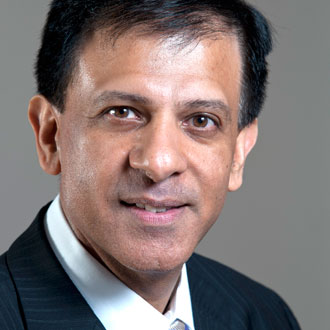Exclusive: GP leaders have launched a major policy drive to improve GP premises as figures obtained by Pulse reveal three quarters of GP practices could be not fit for purpose.
The GPC has accused the Government of leaving GP premises to ‘fossilise’ over the past decade with its ongoing freeze on investments and has demanded immediate action to address the ‘live crisis’. It told Pulse that it planned to map the urgent needs of GP practices through a UK-wide campaign, launched this week, which it plans to present to a health minister next month as part of its push for a national investment programme.
The warning comes as NHS Thurrock CCG revealed in its recently published five-year plan it would be addressing substandard premises, with a survey conducted by the former PCT finding 75% of GP practices across south west Essex were not fit for purpose.
NHS England announced in February it had put the vast majority of GP premises investment on hold while it develops a ‘consistent’ national process to evaluate bids for funding. It also planned to withdraw many of the discretionary services that had been provided by PCTs, including the removal of trade waste and guaranteeing reimbursements related to stamp duty land tax on lease arrangements of eight years or longer.
But GPC chair Dr Chaand Nagpaul warned that patients are suffering on a daily basis because GPs are working in premises that are not able to meet their needs.
He said: ‘We believe that premises is a live crisis. Therefore there is a need to tackle this, to have an immediate strategy as well as perhaps any longer term approach. This is not something that can wait – there is a pressing need to address a crisis in premises which is affecting GPs and patients at this very time, on a daily basis.’
‘Since 2004 there has been absolutely no strategy for funding of GP premises, full stop. Before [the new GMS contract] there was not just a premises strategy but also a scheme for premises reimbursement. From 2004, that came to an end and it changed to being discretionary funding. However that has actually meant no funding at all because of the financial pressures. So while the rest of the NHS, hospitals et cetera, have been invested in, in effect GP premises have been fossilised for a decade.’
He added: ‘[The situation in Essex] ties in with the premise behind the survey we have launched [which] will inform the need for an investment programme that we will demand to be implemented. This is something that, in fact, the Government has to address. If it doesn’t then all of its plans really will not be possible because we will not have the premises to deliver general practice or expanded general practice.’
Dr Nagpul said the GPC would be launching a survey of GP practices across the UK this week to seek their opinions on premises. The results will be presented to health minister Earl Howe in July along with proposals for what the government needs to do to address the problem.
Related stories
GP practices face premises costs hike under plans revealed by PropCo
Training practices set for funding boost as official report endorses premises grants worth £20,000
However NHS England has confirmed it is awaiting the development of its long term strategy before evaluating any investment bids.
NHS England head of primary care commissioning Dr David Geddes told Pulse that area teams have not been allocated any budgets for developing GP premises, and to date all NHS England has done is to collate a list of current and historic premises bids that have yet to be processed.
He said: ‘Within area teams at the moment, there is no clear line to support any revenue for development of premises, and most premises developments will have a revenue consequence… So far what we have done is we have got a list of all the premises development bids, many of them going back from years, and many in various states of development.’
Dr Geddes said whether the freeze would be lifted depended on local commissioners’ longer term strategic plans for primary care, but a guide to be published this month would help make it clearer ‘what sort of bids’ may be taken forward and ‘which ones are actually outwith the focus of what the locality wants as strategy’. NHS England is due to publish its ‘primary care strategic framework’ in October, following the ‘Call to Action’ consultation, while CCGs are to submit final five-year plans for commissioning healthcare locally to NHS England by 20 June.
Dr Geddes said: ‘We need area teams to be able to look at prioritising those on the basis of actually the local primary care strategy. Because there is no point in trying to develop premises which are outwith actually your long term goal for primary care. Why would you develop a service over here, if actually everything else is focusing on a service which actually is going to be more integrated over there.’
However he further admitted that even with the strategies in place, money to fund developments would have to be found ‘in the system’.
He said: ‘It will still mean there is a funding issue, we still need to look at how we resolve some of that, with the funding that is wrapped up in the system, but at least we will be able to be clear and articulate what it is that we want for the premises which is a catalyst for a lot of what we need to talk about.’
Pulse July survey
Take our July 2025 survey to potentially win £1.000 worth of tokens












